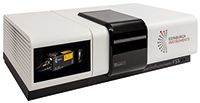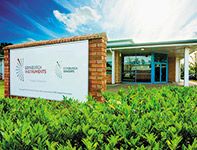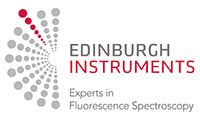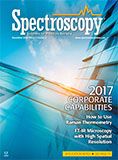Edinburgh Instruments
Company Description
Edinburgh Instruments has become one of the world's largest manufacturers of leading edge spectroscopic instrumentation and gas detection solutions.

Edinburgh Instruments has over 30,000 sq. ft. of manufacturing and office space just outside Edinburgh, where it employs over 75 people. The company is involved in the development, manufacture, and sale of a wide range of high technology products for the scientific research and industrial markets. Product ranges include lasers and analytical spectrometers supplied by the Photonics Division and gas detection and monitoring products supplied by the Sensors Division.
Chief Spectroscopic Techniques Supported
- Fluorescence spectroscopy
- Fluorescence lifetime
- Phosphorescence lifetime
- Luminescence
- Photoluminescence
- Transient absorption spectroscopy
Markets Served
Academia and fundamental research in a wide range of fields including photochemistry, photobiology, various applications in life science and physical chemistry as well as industrial applications such as food science, environment/water monitoring, and solar cells.

Major Products/Services
Research grade fluorescence spectrometers, analytical spectrofluorometers, dedicated fluorescence lifetime spectrometers, pulsed diode lasers and LEDs, terahertz, and CO2 gas lasers.
Facility
Edinburgh Instruments are part of the Techcomp Europe group, with all manufacturing facilities in Scotland. Sales, service, and applications facilities are located around the world.

Edinburgh Instruments
2 Bain Square, Kirkton
Campus, Livingston, EH54
7DQ, United Kingdom
TELEPHONE
+44 (0)1506 425 300
FAX
+44 (0)1506 425 320
WEB SITE
NUMBER OF EMPLOYEES
USA: 2
UK: 75
YEAR FOUNDED
1971

LIBS Illuminates the Hidden Health Risks of Indoor Welding and Soldering
April 23rd 2025A new dual-spectroscopy approach reveals real-time pollution threats in indoor workspaces. Chinese researchers have pioneered the use of laser-induced breakdown spectroscopy (LIBS) and aerosol mass spectrometry to uncover and monitor harmful heavy metal and dust emissions from soldering and welding in real-time. These complementary tools offer a fast, accurate means to evaluate air quality threats in industrial and indoor environments—where people spend most of their time.
NIR Spectroscopy Explored as Sustainable Approach to Detecting Bovine Mastitis
April 23rd 2025A new study published in Applied Food Research demonstrates that near-infrared spectroscopy (NIRS) can effectively detect subclinical bovine mastitis in milk, offering a fast, non-invasive method to guide targeted antibiotic treatment and support sustainable dairy practices.